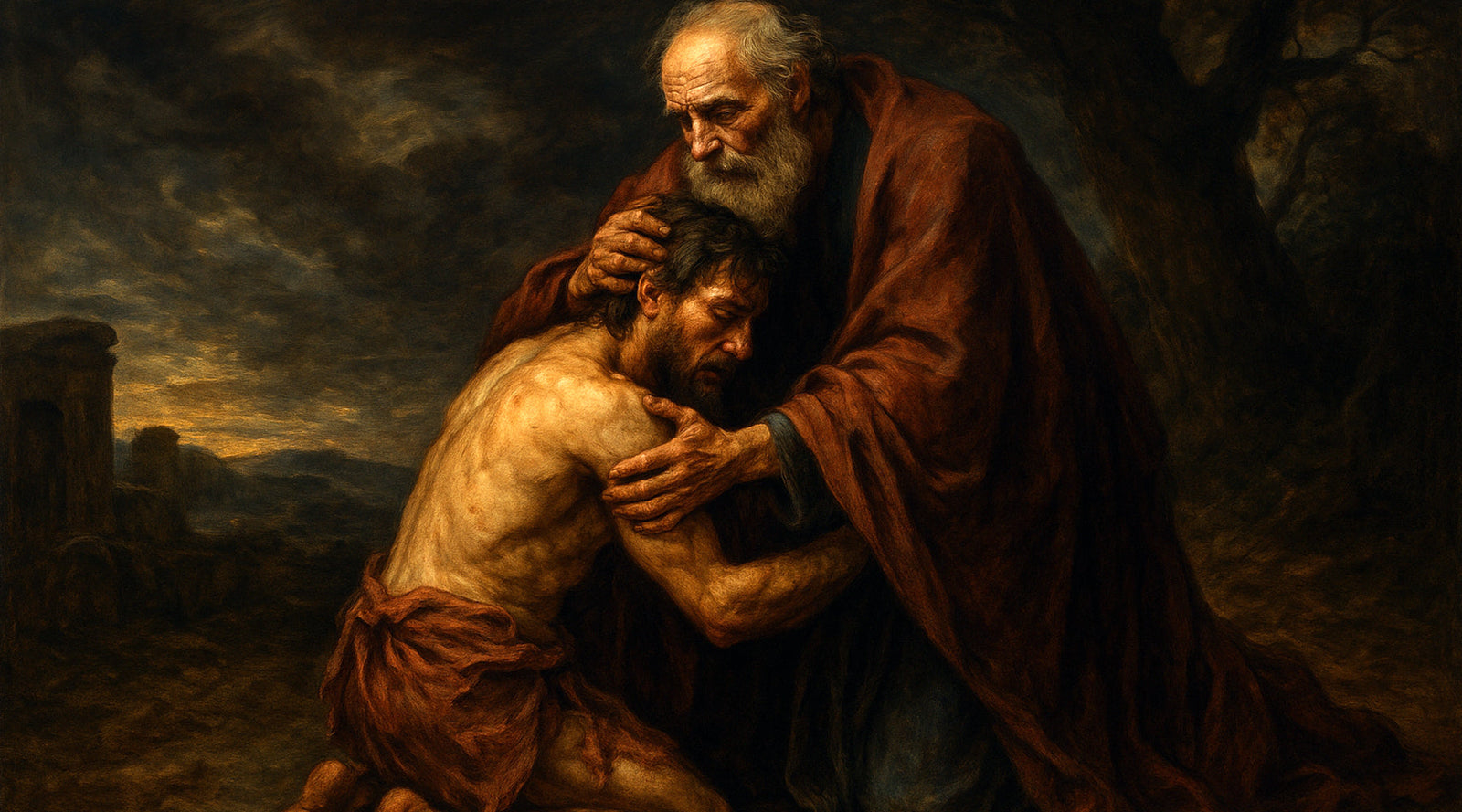Listen to this article
The human heart is a haunted house—echoing, empty, often dimly lit by memory and murkier still when abandoned by its Maker.
We were built for communion with the Creator, and yet, with the first breath we draw, we are already drifting—adrift on seas of self-deceit, seduced by mirages in the desert of meaning.
Psalm 105:4 doesn’t whisper. It commands, it clarifies, it cuts through the fog: “Seek the Lord and His strength; seek His presence continually.” It’s not a suggestion; it’s survival. And yet so many live as if this verse is decoration, not direction.
There is a kind of romantic ruin in the soul that seeks everything but God—a bruised Bohemianism that believes wandering is wisdom, and rebellion, rebirth. The poets and prophets of our time have tattooed their dissatisfactions into the skin of modernity, mistaking the ache for art. But ache unhealed is merely infection, not insight.
We glorify the prodigal’s departure while forgetting that the pigpen isn’t poetic. It stinks.
The story of the prodigal son is often told like a bedtime tale, softened with sentiment, wrapped in Sunday-school simplicity. But it is not a parable about nostalgia. It is a tale of defiance, degradation, and divine mercy. A boy—drunk on the idea of autonomy—demands his inheritance early, a cultural death wish. He takes the blessing and bolts. Like many of us, he mistakes freedom for distance. He thinks the Father’s house is a cage, not a cathedral.
He spends it all—money, time, dignity—until all that’s left is his hunger. And hunger is a holy thing when it leads us home.
The psalmist pleads for a lifelong posture: seek the Lord, seek His strength, seek His face continually. This isn’t the sporadic spirituality of someone trying to sprinkle God on top of their chaos like powdered sugar on a poisoned cake. This is the relentless, rhythm-bound pursuit of presence. It is a return. A reorientation. A recognition that every attempt to live apart from God is spiritual suicide by degrees.
Straying from God does not always look like scandal. Sometimes it looks like success. Sometimes it’s hidden in hustle, cloaked in ambition, dressed in designer distractions. But the soul knows. It withers. It wilts like a flower plucked from the vine, beautiful still, but dying.
To seek God’s strength implies first confessing our weakness. And we hate that. We prefer the illusion of invincibility, of curated control. We raise our fists to heaven, then wonder why the rain doesn’t fall. But strength is not in our steel; it is in our surrender. The prodigal was strong when he was starving, for that was the moment he remembered the Father. Hunger cracked the shell of pride. Rock bottom revealed the rock beneath.
You can be in a mansion and still be spiritually malnourished. You can post Bible verses and still refuse to bend the knee. You can pray with your lips and wander with your heart. Seeking is more than speaking. It is a directional decision of the soul. Every day we are either seeking His face or hiding ours.
The ancient Hebrews would sing Psalm 105 as part of their historical remembrance—a liturgical anchor in the tempest of time. It wasn’t nostalgia; it was necessity. The strength of God wasn’t for show—it was for survival, deliverance, dignity. When your enemies are real and your exile is raw, you don’t seek God for aesthetic reasons. You seek Him because nothing else can sustain you.
And yet in the glittering graveyard of modern life, we often forget that our comfort can be a curse. The prodigal son had to lose everything to remember who he was. In an age of abundance, the hunger is hidden—but it’s still there. And no amount of self-help, hustle, or hashtags can fill the hole carved by Creator-shaped absence.
God’s presence is not passive. It is electric. It convicts and comforts, exposes and enfolds. To seek it is to invite disruption. It will wreck your idols, rearrange your desires, and resuscitate your dead affections. But oh, the glory on the other side.
Strength, in God's economy, is rarely loud. It is not swagger or spectacle. It’s found in the stillness, in the secret place, in the whispered prayer of a broken man who’s tried it all and found it wanting. True strength is the son walking back home barefoot, rehearsing apologies, not knowing if the Father will still want him. But grace runs faster than guilt.
We live in a world of prodigals, many still pretending the pigsty is a palace. But the stink sticks, no matter how much perfume you pour on it. The only way out is home.
Psalm 105:4 doesn’t ask you to be strong. It asks you to seek strength—the kind that doesn’t run dry, the kind that lifted the cross, conquered death, and still answers desperate prayers in the dark.
So seek. Not once, not occasionally, but continually. In your doubts and dreams, in your failure and fire. Seek Him in the silence and in the scream. Seek Him when you’re full and when you’re famished. Because He is not hiding. He is waiting.
And when you come—bruised, busted, barefoot—He will run to you. Always.
If this reflection stirred something in you, you’re not alone. Explore Faith Mode’s collection of unapologetic Christian streetwear—designed for seekers, prodigals, and all who walk the rugged road home.


